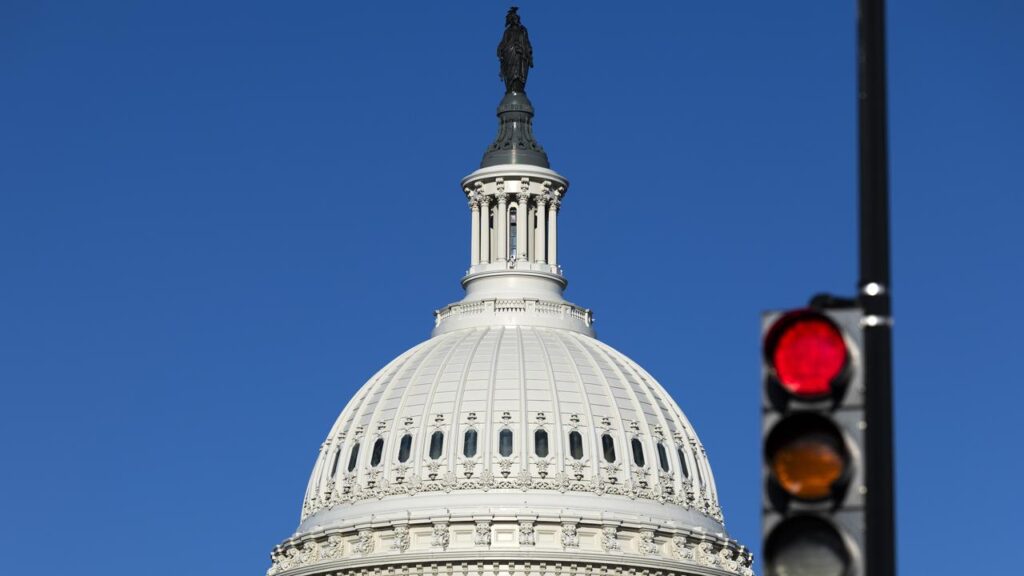EU puts countermeasures on hold after US tariff pause
Liz Lee, Andrea Shalal and Sudip Kar-Gupta |

The European Union will pause its countermeasures against US tariffs after President Donald Trump temporarily lowered the hefty duties he had imposed on dozens of countries, European Commission chief Ursula von der Leyen says.
The bloc was due to launch counter-tariffs on about 21 billion euros ($A37.59 billion) of US imports from next Tuesday in response to Trump’s 25 per cent tariffs on steel and aluminium. It is still assessing how to respond to US car tariffs and the broader 10 per cent levies still in place.
“We want to give negotiations a chance,” von der Leyen said on X.
“While finalising the adoption of the EU countermeasures that saw strong support from our Member States, we will put them on hold for 90 days.”
Von der Leyen reaffirmed an offer for a “zero-for-zero” tariff agreement for all industrial goods between the EU and the US.
Trump’s stunning decision brought relief to battered global markets and anxious European leaders, even as he ratcheted up a trade war with China.
Trump’s turnabout, which came less than 24 hours after steep new tariffs kicked in on most trading partners, followed the most intense episode of financial market volatility since the early days of the COVID-19 pandemic.
US stock indexes shot higher on the news, and the relief continued into Asian and European trading on Thursday.
The pan-European STOXX 600 jumped 5.4 per cent in trading on Thursday, after losing 12.5 per cent since the tariffs took effect on April 2. Trade-sensitive Germany’s DAX index rose 5.6 per cent.
Before Trump’s U-turn, the upheaval had erased trillions of dollars from stock markets and led to an unsettling surge in US government bond yields that appeared to catch the US president’s attention.

“I thought that people were jumping a little bit out of line, they were getting yippy, you know,” Trump told reporters after the announcement, referring to the jitters sportspeople sometimes get.
Trump kept the pressure on China, the world’s No.2 economy and second-biggest provider of US imports with an increase of tariffs on Chinese imports to 125 per cent from the 104 per cent level that kicked in on Wednesday.
China will “follow through to the end” if the US insists on its own way, Commerce Ministry spokesperson He Yongqian told a regular press briefing. China’s door was open to dialogue, but this must be based on mutual respect, the ministry said.

“The US cause doesn’t win the support of the people and will end in failure,” China’s Foreign Ministry spokesperson Lin Jian said.
Beijing may again respond in kind after imposing 84 per cent tariffs on US imports on Wednesday to match Trump’s earlier tariff salvo.
“We don’t back down,” Mao Ning, another Foreign Ministry spokesperson, posted earlier on X on Thursday, sharing a video of a defiant speech by late Chinese leader Mao Zedong from 1953 during its war with the United States on the Korean peninsula.
The Korean War ended in a stalemate later that year.
Trump said a resolution with China on trade is also possible. But officials have said they will prioritise talks with other countries as Vietnam, Japan, South Korea and others line up to try and strike a bargain.
“China wants to make a deal,” Trump said. “They just don’t know how quite to go about it.”
Goldman Sachs revised down its forecasts for China’s GDP growth to four per cent in 2025, from previous projections of 4.5 per cent, citing the negative effects of tariffs.
US Treasury Secretary Scott Bessent asserted the 90-day freeze on Trump’s “reciprocal tariffs” had been the plan all along to bring countries to the table. Trump, though, later indicated that the near-panic in markets that had unfolded since his April 2 announcements had factored into his thinking.
Trump’s reversal on the tariffs imposed on other countries is also not absolute. A 10 per cent blanket duty on almost all US imports will remain in effect, the White House said.
The announcement also does not appear to affect duties on autos, steel and aluminium that are already in place.
Reuters